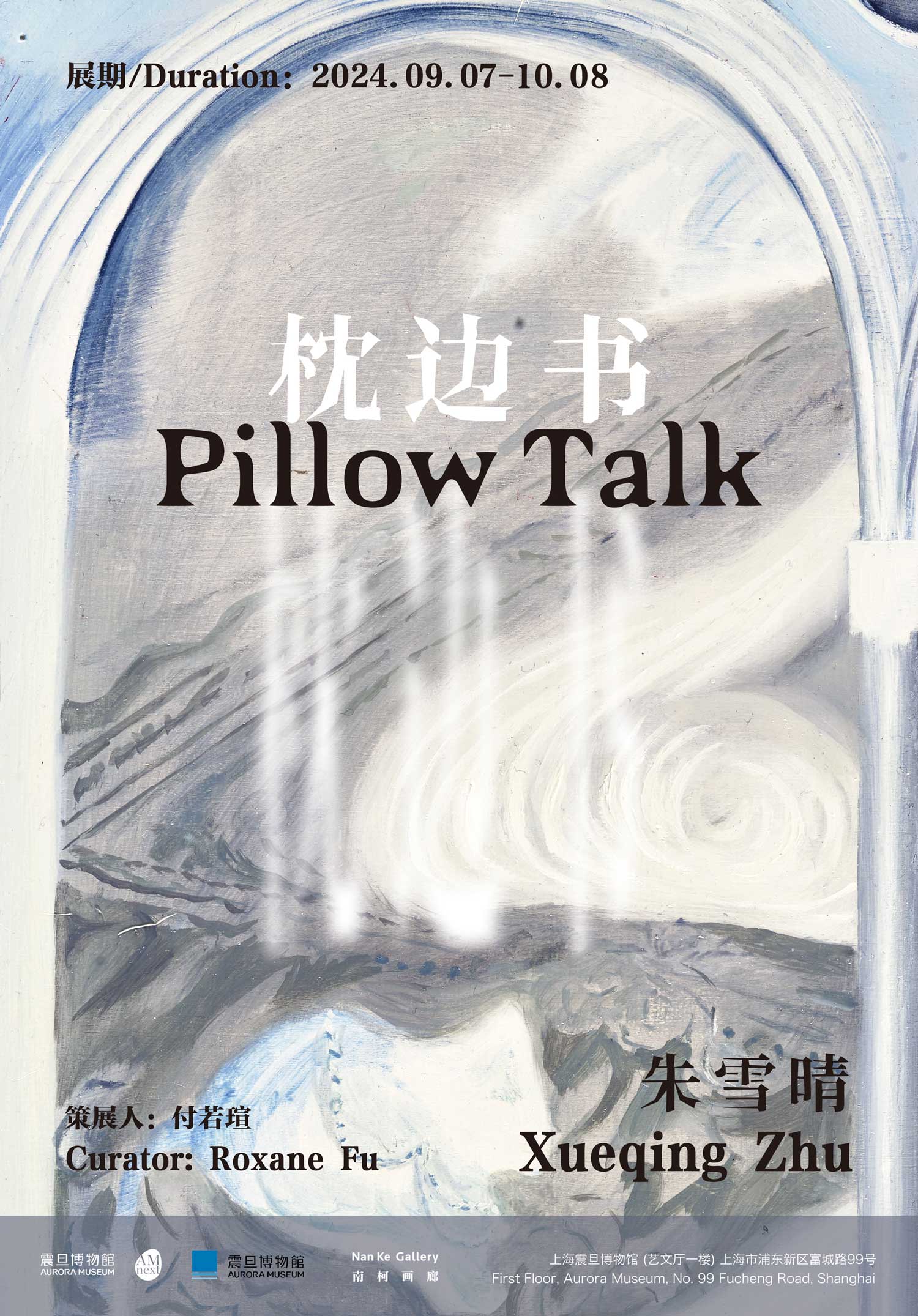"After days of solitude, I’ve grown to cherish my own emptiness, finding comfort in it, as if it were a roaring fire."
— Marguerite Duras, The Quiet Life
NanKe Gallery is pleased to announce that represented artist Xueqing Zhu will present her solo exhibition Pillow Talk at the Aurora Museum from September 7th to October 8th. The exhibition takes the transition between dreaming and waking up as a starting point, echoing the artist's surreal mode of expression, her reflection on the changing reality, and her willingness to balance the two.
For Xueqing Zhu, the act of creation resembles the process of dream-making. Real-world experiences are transformed into fantastical imaginings and metaphors, meticulously arranged in silence into a rich and captivating theater. The exhibition opens withTender Flame: Five Chapters, strategically placed at the entrance, where flames and elongated houses represent both the peril of stagnation and a wild, untamed inner force. Through self-dialogue, old structures are destroyed, allowing the artist to explore with newfound freedom and lightness the uncharted, chilling wonderlands that lie ahead.
The exhibition space is reminiscent of an old cinema, draped in deep red tones, where Zhu’s paintings unfold like frames of a slow-paced film, each image narrating a complete story with deliberate rhythm. Her works break free from their canvases, telling tales of continuous self-exploration and the whimsical landscapes encountered along the way.
The exhibited works strongly reflect Xueqing’s command of surrealism. Since the 1920s, surrealism’s romantic, untethered, and avant-garde qualities have provided many female artists with a platform for breakthrough in the art world. For Xueqing, the notion of “movement” is a defining theme in her practice. Her journey—from studying in Venice to creating in Shanghai—mirrors a constant shedding of old burdens. Her works document this liberated creative exploration, revealing new artistic frontiers.
A deep red curtain descends from the ceiling, framing Free Bird Trip in a regal display. This piece, connected to the earlier theme of escape, charts the journey “after the departure.” The sprawling desert embodies the duality of freedom and desolation, while the figure’s balancing pole evokes the equilibrium found in traditional Chinese Tai Chi. In Zhu’s cartography of exploration, “freedom” is not an unchecked drift into chaos, but a rhythmic overcoming of fears of solitude and emptiness—a boundless quest in the desert, devoid of coordinates, seeking the green pastures of the soul.
Mexican surrealist Leonora Carrington has profoundly influenced Zhu’s work. Carrington’s use of egg tempera, with its jewel-like hues and fairy-tale imagery, serves as a means of articulating her creative vision. In Zhu’s paintings, elongated strands of hair, petals tangled in cobwebs, and checkered skirts appear with a playful grace, constructing a fantastical fairy-tale realm that envelops a core of sharp, profound intensity.
On the opposite wall, her latest works, created in Shanghai, enlarge fragile veins dissected with meticulous precision, echoing the contemplative spirit of another surrealist icon, Frida Kahlo. Veins, symbols of love and life, gently envelop sharp fragments, conjuring a poignant mix of coldness and warmth on the journey ahead.
Throughout Zhu’s oeuvre, the act of “departure” is ever-present, but it is not an end in itself. It represents a childlike purity and clarity in the pursuit of exploration: outdated ideas are cut away, making room for the “light footsteps” of Tagore’s Burning Memories, and opening spaces for the unknown and for the self to take root and grow.
In the grand scheme of the exhibition, the “images” within Zhu’s paintings and texts—framed within acts of destruction—become secondary. Instead, they aim to evoke a broader and deeply personal connection with each viewer, fostering empathy and resonance. By sitting within the immersive exhibition, Pillow Talk stages a journey into solitude, where another wondrous world glimpses back from the void. As expressed in The Quiet Life:
“Let the fire burn slowly, without saying a word or passing judgment. I will move forward, renewing myself in the emptiness.”

